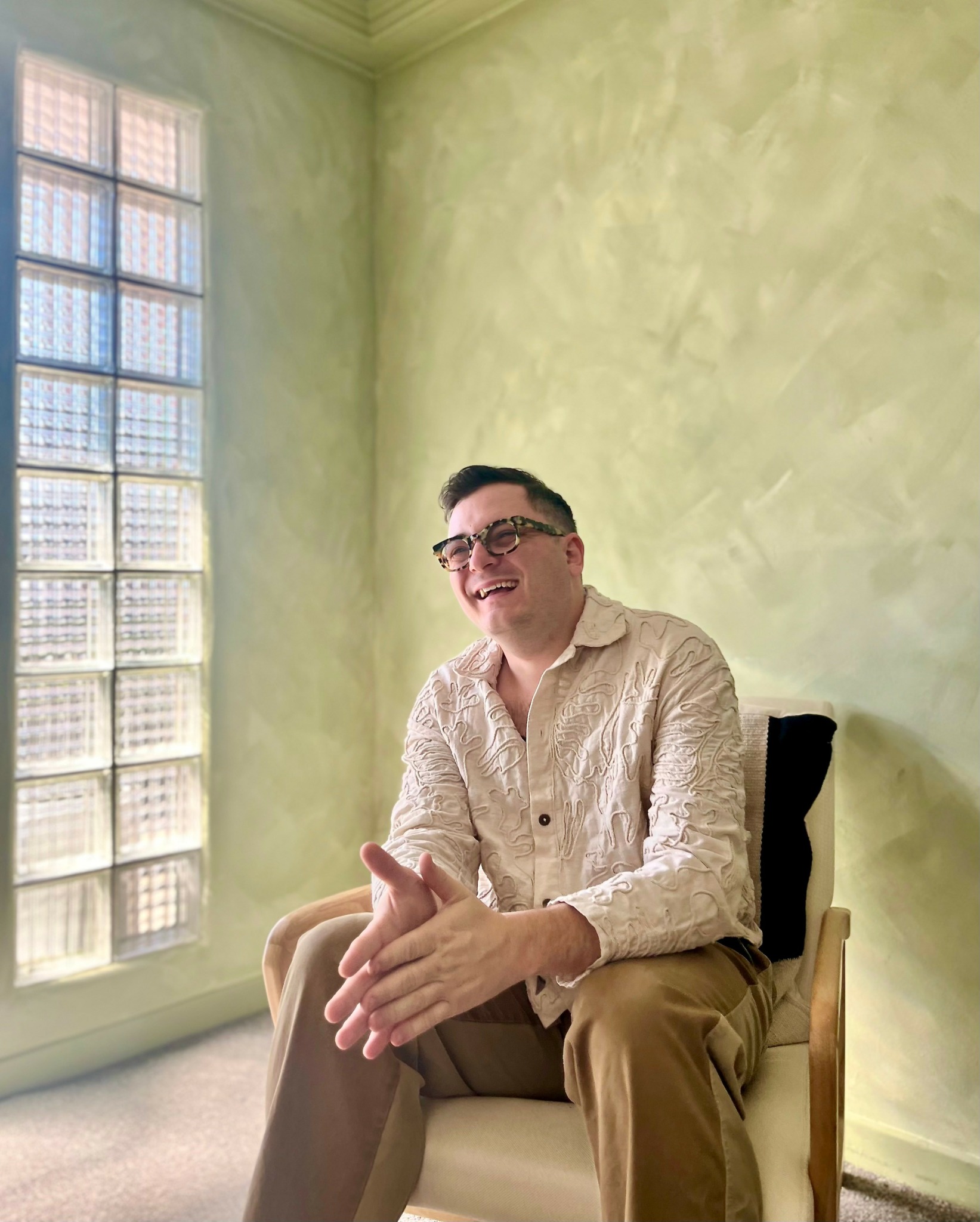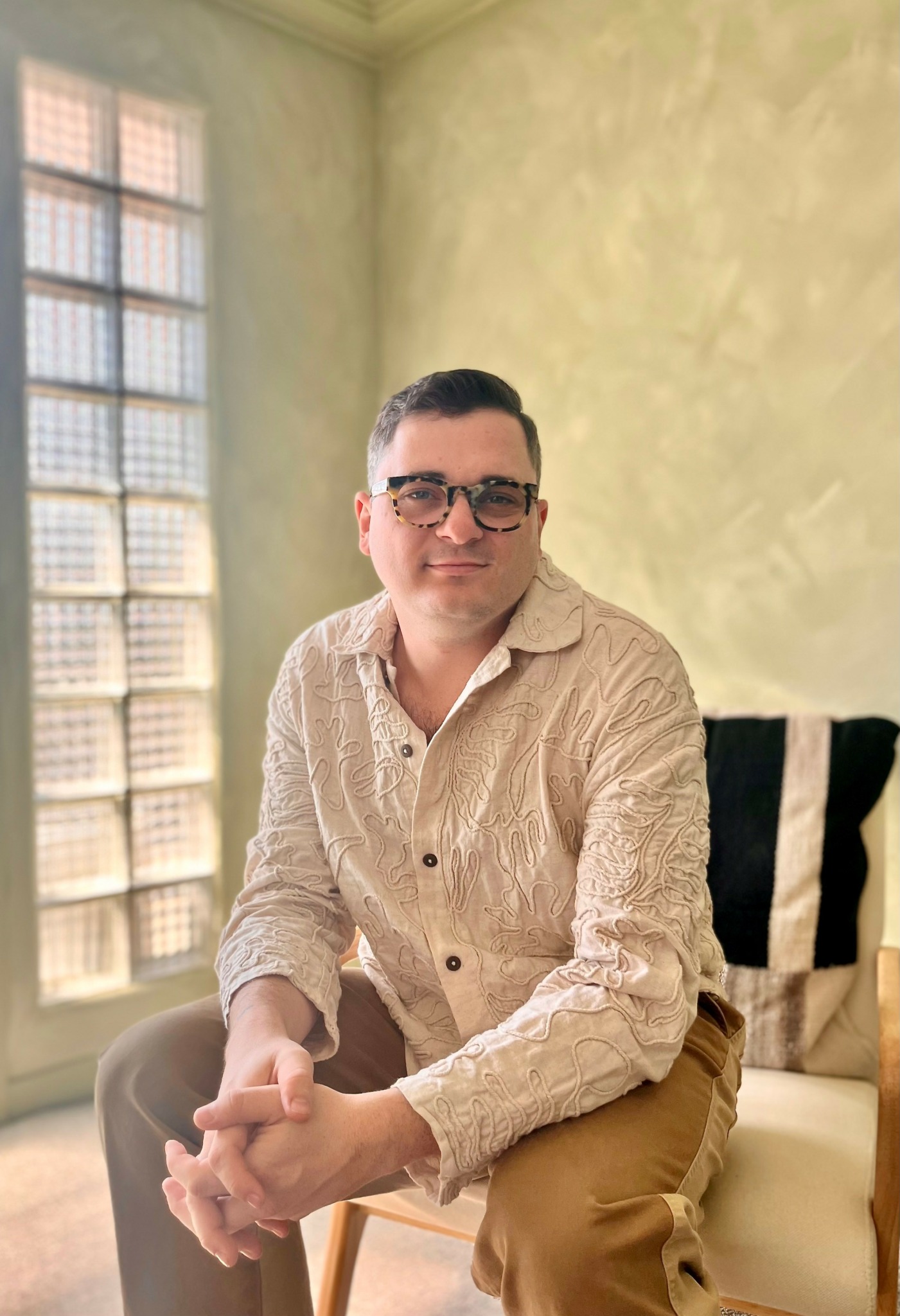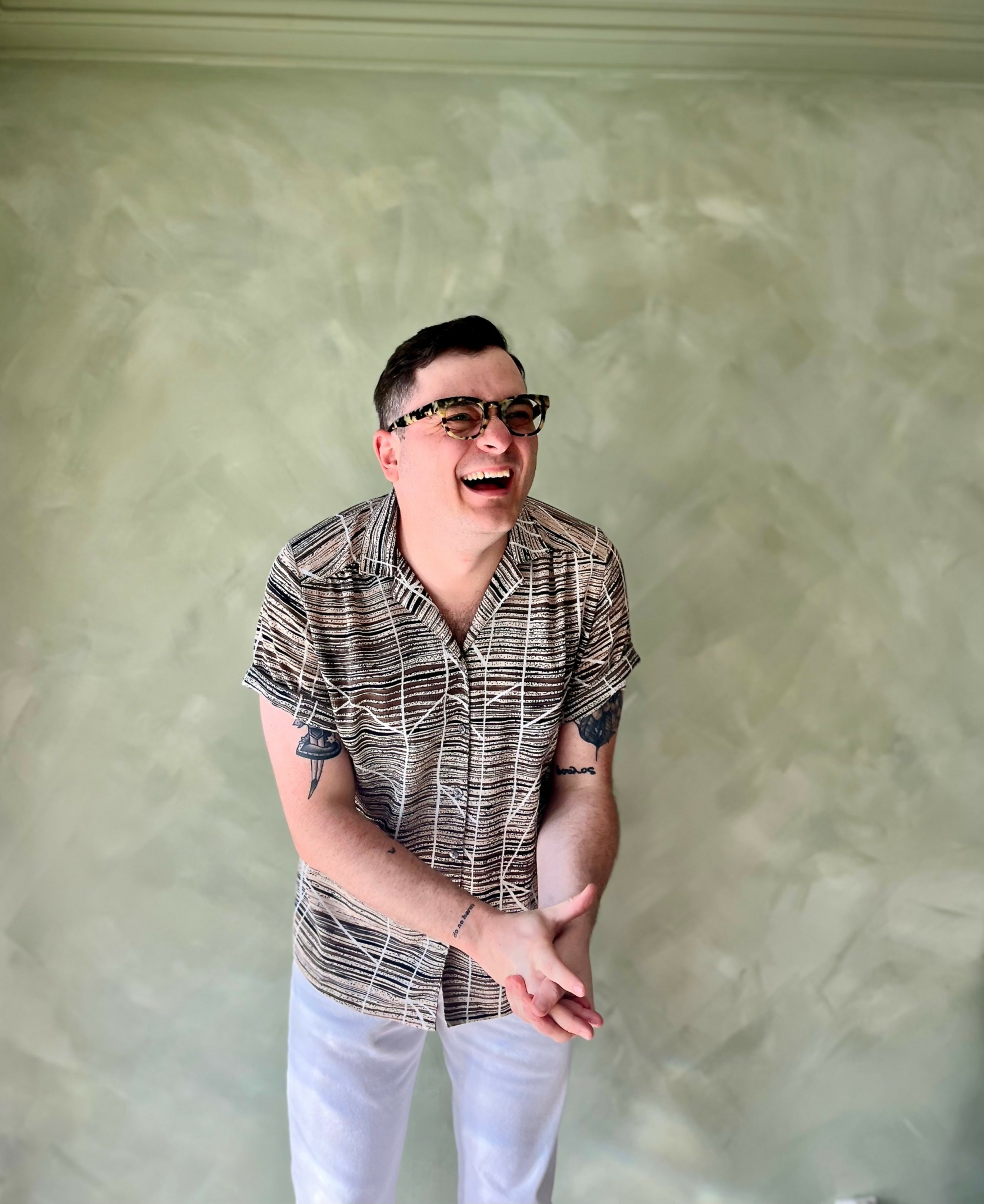We’re excited to introduce you to the always interesting and insightful Mick Silvers. We hope you’ll enjoy our conversation with Mick below.
Mick, thanks for taking the time to share your stories with us today It’s always helpful to hear about times when someone’s had to take a risk – how did they think through the decision, why did they take the risk, and what ended up happening. We’d love to hear about a risk you’ve taken.
The risk I took was leaving my steady job in non-profit work on Skid Row to step into the uncertainty of private practice.
For seven years, I worked alongside a community that taught me more than any lecture or textbook ever could. Skid Row shaped me as a therapist in ways no textbook or training ever could. It taught me the power of presence, the raw strength of human resilience, authentic courage, and the innate need for connection that lives in us all. Working there demanded that I shed pretense, embrace discomfort, and meet people exactly where they were.
In August, I made the leap. It was a decision fraught with risks. Leaving a secure paycheck behind, I had no financial safety net if I failed. There was no guarantee clients would come, no promise that my efforts would succeed. On top of that, I battled the ever-present voice of impostor syndrome, a belief rooted in my own upbringing. Growing up, I didn’t think I’d amount to much because I didn’t have a clear passion or path. When I finally found my calling, I struggled to believe I was capable of pursuing it.
Clinical psychology programs don’t teach you how to run a private practice. The business side—marketing, networking, bookkeeping—I had to figure out on my own. That learning curve added to the fear, but it also gave me a deeper connection to the men I now work with. Many of them face similar struggles—feeling lost without a passion or doubting their ability to follow one.
The decision to take this risk wasn’t just about changing careers; it was about believing in myself enough to step into something unknown. My calling. Now, months into this journey, I see the value of the risk every day. The clients I work with show me how important it is to have someone who knows how to witness your suffering. Taking this step was an important decision I made both professionally and personally.

Great, appreciate you sharing that with us. Before we ask you to share more of your insights, can you take a moment to introduce yourself and how you got to where you are today to our readers.
My journey to becoming a therapist began as a calling rather than a decision. After completing my undergraduate degree in Intercultural Community Development, I felt pulled toward work that was deeply rooted in human connection. This calling led me to Skid Row in Los Angeles, where I worked alongside individuals and families experiencing homelessness. I was immersed in their stories of resilience and struggle, learning firsthand about the profound need for love, belonging, and safety.
What sets me apart as a therapist is my ability to hold space for my clients in a way that honors their struggles as meaningful. I believe that within every wound lies the potential for wisdom, and it’s my role to help my clients uncover that wisdom. My work centers on men and couples. For men, this often means navigating the isolation and weight of societal expectations that strip them of their authenticity. For couples, it’s about restoring the connection that’s been lost to the demands of everyday life. In both cases, I create a space where vulnerability is not only welcomed but celebrated.
My approach is deeply personal and human. As someone who has walked the path of healing from difficult life moments, anxiety, and emotional upheaval, I bring my authentic self into every session. Therapy with me isn’t a clinical transaction; it’s a collaboration—a partnership built on trust and shared humanity. My clients know they are not just talking to a professional but to someone who truly understands what it means to struggle and to grow.
What I’m most proud of is the community I’ve built, both in and outside the therapy room. Through my work on social media, particularly on Instagram (@sitwithmick), I strive to demystify the therapeutic process. By showing up as my authentic self online, I create a bridge for people who might find therapy intimidating or unfamiliar. They come to me knowing who I am, what I value, and how I work, which makes starting therapy a little less daunting.
For those seeking therapy, I want them to know this: I am here to honor your story, not to fix it. Whether you’re a man feeling crushed under the weight of expectations or a couple yearning to find your way back to each other, I create a space where you can uncover the deeper truth of your experience. Together, we work not to erase the pain but to understand it, embrace it, and let it transform you.
This work is more than a profession to me; it’s a calling, a craft, and a privilege. It’s about bearing witness to the human spirit’s ability to heal and grow, even in the face of profound suffering.

We often hear about learning lessons – but just as important is unlearning lessons. Have you ever had to unlearn a lesson?
Within the helping professions, there exists a deeply ingrained narrative: that meaningful work must be accompanied by suffering, and that to succeed, especially in private practice, is nearly impossible. This is a story I had to unlearn.
In graduate school, I often heard the refrain that private practice was not a viable path, especially in a city like Los Angeles. I was told that success in this realm was reserved for only a few, and that most therapists should resign themselves to low wages and impossible workloads. It was a cautionary tale, woven from the old belief that one must endure hardship to earn legitimacy—a mindset born of struggle, passed down as a rite of passage.
But in my journey, I’ve found the opposite to be true. When I left the nonprofit sector and stepped into private practice, I discovered not just the possibility but the power of creating meaningful work on my terms. It required me to reject the narrative of scarcity and lean into a new story: one that says therapists can thrive, not just survive.
The transition wasn’t easy. I was shocked to see how many associateships offered low wages, taking large portions of earnings under the guise of “paying your dues.” It felt like a system built to perpetuate suffering. Yet I have had the privilege of working under a supervisor who believes that professional growth and personal fulfillment are not future goals but present necessities. This perspective has opened doors for me—allowing me to take on projects and gigs that extended my work beyond the four walls of the therapy room.
The shift came when I realized that setting rates to ensure my financial security wasn’t an act of selfishness, but of integrity. When I am secure, I am better able to serve. This approach not only strengthened my practice but also allowed me to impact my community in meaningful ways.
The lesson here isn’t that private practice is simple or guaranteed—it requires intention, strategy, and no small amount of courage. But the belief that therapists must suffer to do good work is a lie we must unlearn. If we are called to sit with others in their struggles and help them find paths forward, why shouldn’t we offer the same grace and possibility to ourselves and our colleagues?
In this way, I’ve learned that the work of a therapist doesn’t have to be confined to the therapy room. By expanding the vision of what our roles can be, and by rejecting the myth of struggle as virtue, we not only elevate our profession but also create the space to do the transformative work we’re called to do.

How’d you build such a strong reputation within your market?
What has helped me build my reputation within my market is the simple yet profound act of showing up as human—flawed, genuine, and deeply committed to the work. Early in my career, I was taught to keep myself “out of the room,” but over time, I realized that the people I work with—especially men—don’t want a distant, clinical expert. They are seeking a fellow traveler, someone who has wrestled with their own shadows and emerged with the wisdom of a wounded healer.
Social media has been a powerful vehicle for connection, allowing me to extend my presence beyond the sterile exchanges of business cards at networking events. In my experience those spaces often lack depth, offering little insight into how a therapist works or who they are as a person. Through Instagram, I can share my thoughts, my way of speaking, and my presence, helping both colleagues and clients see me before they meet me. This visibility has led to referrals from fellow therapists who feel confident recommending me, knowing I approach my work with heart and authenticity. For clients, it dissolves some of the initial fear, allowing them to step into therapy feeling they already know a part of me.
Connection-building hasn’t been limited to the digital realm. Coffee meet-ups with colleagues and hosting Praxis Dinner Dates—intimate monthly gatherings of therapists for home-cooked meals—have created spaces where networking transcends into meaningful relationships. These dinners focus on personal and professional conversations, fostering a deeper understanding of each other’s work and creating community in a field that can often feel isolating. By rooting these interactions in shared humanity, I’ve aimed to build networks that are more about connection than transaction.
This ethos also shapes how I begin relationships with clients. Therapy inherently requires vulnerability, and the traditional model of a brief phone call before committing to a therapist often doesn’t provide enough time to feel safe. To address this, I offer an exploratory session—a full 50-minute meeting where we get to know each other, and the client can see how I work. If they choose to continue, the session is charged; if not, it’s on me. This approach makes therapy feel less risky and more focused on care. Even if a client decides not to move forward, I can provide them with a curated referral list based on our conversation, rather than a generic set of options.
Ultimately, my reputation has been built through creating spaces—whether online, at the dinner table, or in the therapy room—where genuine connection and care come first. Healing, I’ve found, is in meeting another human being exactly where they are. It’s this alchemy of connection that transforms both therapist and client, leaving a legacy of trust and authenticity.
Contact Info:
- Website: https://www.itsaboutpraxis.com/therapy-for-men
- Instagram: https://www.instagram.com/sitwithmick/
- Linkedin: https://www.linkedin.com/in/micksilvers/
- Other: https://www.psychologytoday.com/us/therapists/mick-silvers-sierra-madre-ca/1369216



